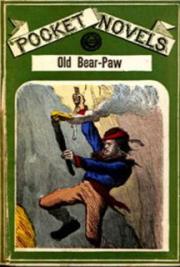COMMENTS FROM THE CRITICS
Anne Barton
(Introduction to Much Ado in
The Riverside Shakespeare, pages 327-28)
"When Berlioz, in 1861, turned Much Ado about Nothing into an opera, he retitled it Béatrice et Bénédict. He omitted Don John entirely and replaced Dogberry and Verges. ... The course of Hero's and Claudio's love is quite smooth Berlioz' emphasis on Beatrice and Benedick at the expense of what is, strictly speaking, the main plot of Shakespeare's comedy is familiar: a reflection of the way actors, audiences, and readers have tended to react for several hundred years."
"Much Ado about Nothing represents a variant on the more usual Shakespeare comic pattern of a journey from an urban to a rural, an ordinary to a heightened world, and back again. All of the action of the play takes place in Messina, but ... it happens to be filled with glamorous strangers resting there for a time after a triumphant military campaign, and by the sense of gaiety and elation attendant upon a newly concluded peace."
Stephen Greenblatt
(Introduction to Much Ado in the
Norton Shakespeare, pages 1381-82)
"Much Ado about Nothing is written largely, though not entirely, in prose ... This prose, however, is of a kind to which we are no longer accustomed. ...
Elizabethan prose is often playful, rhetorically inventive, and richly metaphorical."
"Benedick's relation to the Prince can be understood in the light of Baldassare Castiglione's famous courtesy manual The Book of the Courtier (1528). ...
[The characters in this book] discuss the qualities that must be possessed by the ideal courtier [He] must be equally adept at making war and at making love. He must be able to assist the Prince and to dance elegantly, to grasp the subtleties of diplomacy and to sing in a pleasant, unaffected voice, to engage in philosophical speculation and to tell amusing after- dinner stories."
Joseph Rosenblum
(A Reader's Guide to Shakespeare, pages 224-25)
"William Shakespeare's Much Ado about Nothing has in fact very much to do with "noting" (an intended pun on "nothing") or half-seeing, with perceiving dimly or not at all. Out of a host of misperceptions arises the comedy of Shakespeare's drama. Indeed, if it can be said that one theme preoccupies Shakespeare more than any other, it is that of perception, which informs not only his great his great histories and tragedies, but his comedies as well. ...
Both Othello and King Lear are perfect representatives of the tragic consequences of the inability to see. Hindered by their egos, they live in their own restrictive worlds oblivious to reality. ...
"Although the blindness of Leonato, Don Pedro, Claudio, and Benedick in Much Ado about Nothing very nearly results in tragedy, it is the comic implications of noting rather than seeing that Shakespeare is concerned with here."







